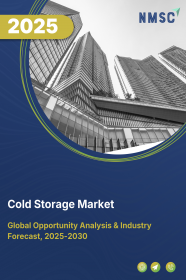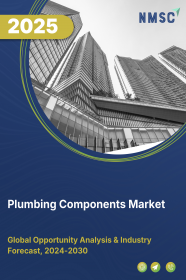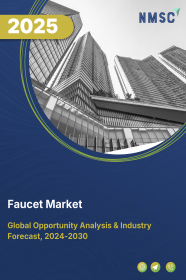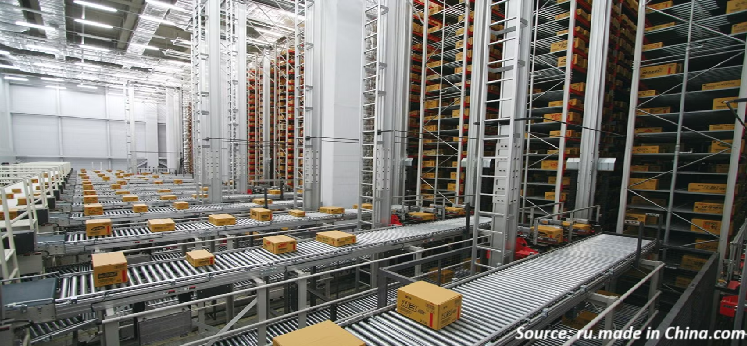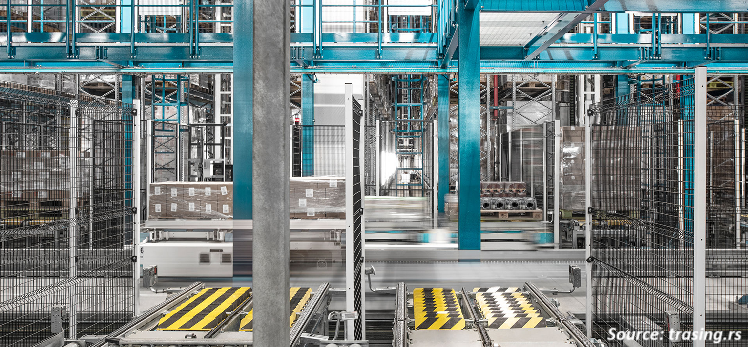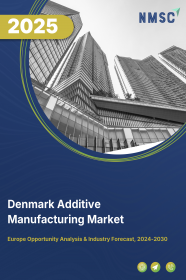
Denmark Additive Manufacturing Market by Type (Desktop 3D Printer and Industrial 3D Printer), by Technology (Stereolithography, Fused Deposition Modeling, Selective Laser Sintering, Direct Metal Laser Sintering, Polyjet Printing, Inkjet Printing, Electron Beam Melting, Laser Metal Deposition, Digital Light Processing, Laminated Object Manufacturing, and Other Technology), by Component (Hardware, Software, and Services), and Others – Opportunity Analysis and Industry Forecast, 2024–2030
Industry: Construction & Manufacturing | Publish Date: 14-Feb-2025 | No of Pages: 138 | No. of Tables: 102 | No. of Figures: 67 | Format: PDF | Report Code : CM656
US Tariff Impact on Denmark Additive Manufacturing Market
Trump Tariffs Are Reshaping Global Business
Denmark Additive Manufacturing Market Overview
Denmark Additive Manufacturing Market size was valued at USD 80.6 million in 2023, and is predicted to reach USD 260.2 million by 2030, at a CAGR of 16.8% from 2024 to 2030. In terms of volume, the market size was 4 thousand units in 2023, and is projected to reach 18 thousand units by 2030, with a CAGR of 20.4% from 2024 to 2030.
The additive manufacturing (AM) market, also known as additive layer manufacturing (ALM) or three-dimensional (3D) printing, is a global industry focused on developing, manufacturing, and distributing technologies and materials to create three-dimensional objects layer by layer from digital models.
This market caters to diverse sectors such as aerospace, automotive, healthcare, and consumer goods, offering advanced solutions for prototyping, production, and customized manufacturing.
AM is highly regarded for its ability to produce intricate and personalized components while minimizing material waste, leading to significant cost savings and environmental benefits. A key feature of this market is its wide range of printing technologies including stereolithography (SLA), selective laser sintering (SLS), and fused deposition modeling (FDM), each tailored to specific industry needs and applications. Furthermore, AM's capability for rapid prototyping accelerates product development cycles, enabling businesses to innovate and bring products to market more swiftly compared to traditional manufacturing methods.
Surge in Healthcare Advancements Drives the Adoption of Additive Manufacturing
The burgeoning advancements in Denmark's healthcare sector is driving a surge in the adoption of advanced technologies such as additive manufacturing (AM). These technologies enable the production of personalized implants, prosthetics, and medical devices tailored to individual patient needs. As the country's healthcare sector moves towards more customized treatments and solutions.
AM facilitates rapid prototyping of medical equipment and tools, thereby accelerating its adoption. According to the latest OECD report, Denmark spends approximately USD 6280 million per capita on health, accounting for around 9.5% of the country's total GDP. This significant investment in healthcare necessitates the integration of innovative devices such as AM to enhance patient outcomes, foster innovation, and streamline development processes within the country's healthcare sector.
Rapid Advancements in Manufacturing Sector Boosts the Market Growth
The rapid advancements in Denmark's manufacturing sector are further accelerating the demand for additive manufacturing (AM) technologies. Industries across Denmark are optimizing production processes, minimizing waste, and rapidly prototyping innovative designs by leveraging AM's versatility, cost-effectiveness, and customization potential.
For instance, in February 2023, Atlant 3D printing the first Advanced Manufacturing Hub in Copenhagen, marking a significant milestone in Denmark's AM sector. This hub serves as a collaborative space for research, development, and production using cutting-edge AM technologies. Such initiatives are poised to drive innovation in the Denmark additive manufacturing market growth, positioning as a prominent player in advanced manufacturing on the global stage.
High Upfront Investment Restrains Market Growth
The substantial upfront investment needed for equipment, materials, and training presents a significant obstacle to Denmark additive manufacturing market expansion. This financial commitment poses a notable challenge for businesses, particularly smaller ones, limiting their capacity to enter or expand operations within the market.
Additionally, ongoing expenses related to materials and training further increase the overall financial burden. Consequently, many businesses are hesitant to adopt AM technology due to these initial financial challenges, thereby impeding the growth potential of the additive manufacturing market.
Integration of Artificial Intelligence (AI) in Additive Manufacturing Presents Lucrative Opportunity for Market Expansion
Integrating artificial intelligence (AI) into additive manufacturing (AM) is anticipated to expand the 3D printing by enhancing production processes, advancing product design capabilities, and facilitating the creation of intricate and personalized objects.
AI integration enables businesses to analyze extensive data gathered during printing, encompassing material properties, printing parameters, and environmental conditions. This analysis helps identify patterns, optimize settings, and predict potential defects, ultimately improving printing precision and reducing material waste.
Competitive Landscape
The prominent key players operating in Denmark additive manufacturing industry include COBOD International A/S, Davinci 3D, Addifab ApS, 3D Printhuset, SLM Solution, Markforged, Shape Robotics, Semco Maritime, Dansk AM Hub, Wasp S.r.l, and others.
Denmark Additive Manufacturing Market Key Segments
By Type
-
Desktop 3D Printer
-
Industrial 3D Printer
By Technology
-
Stereolithography
-
Fused Deposition Modeling
-
Selective Laser Sintering
-
Direct Metal Laser Sintering
-
Polyjet Printing
-
Inkjet Printing
-
Electron Beam Melting
-
Laser Metal Deposition
-
Digital Light Processing
-
Laminated Object Manufacturing
-
Other Technology
By Component
-
Hardware
-
Software
-
Design Software
-
Inspection Software
-
Printer Software
-
Scanning Software
-
-
Services
By Application
-
Prototyping
-
Tooling
-
Functional Parts
By End User
-
Desktop Additive Manufacturing
-
Educational Purpose
-
Fashion & Jewellery
-
Objects
-
Dental
-
Food
-
Other Desktop Additive Manufacturing
-
-
Industrial Additive Manufacturing
-
Automotive
-
Aerospace & Defense
-
Healthcare
-
Consumer Electronics
-
Power & Energy
-
Other Industrial Additive Manufacturing
-
Key Players
-
COBOD International A/S
-
Davinci 3D
-
Addifab ApS
-
3D Printhuset
-
SLM Solution
-
Markforged
-
Shape Robotics
-
Semco Maritime
-
Dansk AM Hub
-
Wasp S.r.l
REPORT SCOPE AND SEGMENTATION:
|
Parameters |
Details |
|
Market Size Value in 2023 |
USD 80.6 million |
|
Revenue Forecast in 2030 |
USD 260.2 million |
|
Growth Rate |
CAGR 16.8% from 2024 to 2030 |
|
Market Volume in 2023 |
4 thousand units |
|
Market Forecast in 2030 |
18 thousand units |
|
Volume Growth Rate |
CAGR of 20.4% from 2024 to 2030 |
|
Analysis Period |
2023–2030 |
|
Base Year Considered |
2023 |
|
Forecast Period |
2024–2030 |
|
Market Size Estimation |
Million (USD) |
|
Growth Factors |
|
|
Companies Profiled |
10 |
|
Market Share |
Available for 10 companies |
|
Customization Scope |
Free customization (equivalent up to 80 working hours of analysts) after purchase. Addition or alteration to country, regional, and segment scope. |
|
Pricing and Purchase Options |
Avail customized purchase options to meet your exact research needs. |

















 Speak to Our Analyst
Speak to Our Analyst



